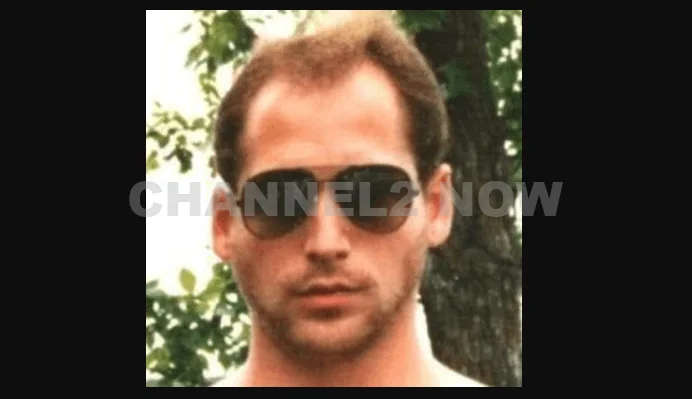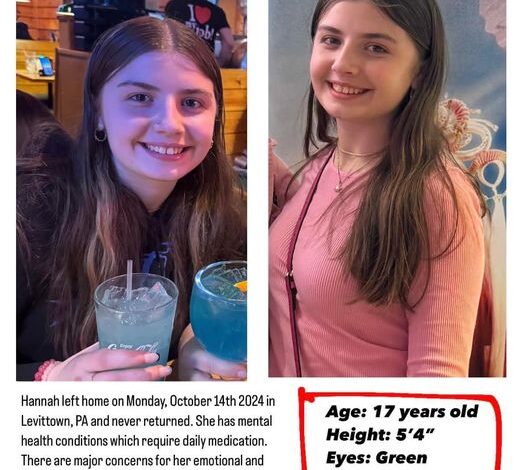
Fargo Police Fatally Shoot 65-Year-Old Peter Greco Following Suicide Crisis Intervention on November 13, 2024: Authorities Launch Investigation Into Officer Use of Force
Fargo Police Fatally Shoot 65-Year-Old Peter Greco Following Suicide Crisis Intervention on November 13, 2024: Authorities Launch Investigation Into Officer Use of Force
In a tragic and complex incident, 65-year-old Peter Greco was fatally shot by Fargo police officers after a prolonged conversation with law enforcement at his residence on November 13, 2024. The incident, which unfolded in the 6100 block of 61st Avenue South in Fargo, North Dakota, has led to an ongoing investigation by the North Dakota Bureau of Criminal Investigation (NDBCI), as authorities examine the circumstances surrounding the use of deadly force.
Background of the Incident
At approximately 10:12 a.m. on November 13, 2024, the Fargo Police Department received a call concerning the well-being of 65-year-old Peter Greco. The nature of the call indicated that Greco, a resident of the 6100 block of 61st Avenue South, had been expressing suicidal thoughts. Given the sensitive nature of the situation, officers were dispatched to his home to attempt to engage with Greco and assess the situation.
The officers involved in the response, Sergeant Lucas Mock and Officer Princeten Harris, arrived at the residence and began a dialogue with Greco in an attempt to de-escalate the situation. According to the Fargo Police Department, the officers spent over 30 minutes talking to Greco, trying to address his concerns and provide support during what was understood to be a mental health crisis.
While initial reports suggest that both officers made significant efforts to engage in a calm, reasoned discussion with Greco, the situation took a violent turn when Greco exited his home armed with a handgun. Law enforcement sources indicate that, despite repeated attempts to convince Greco to surrender the weapon and engage in peaceful dialogue, Greco exited his residence with the firearm, prompting an immediate and high-stress response from the officers.
Both Sgt. Lucas Mock and Officer Princeten Harris fired their weapons during the encounter, fatally striking Greco. The officers immediately began performing CPR while awaiting the arrival of emergency medical personnel. Despite these efforts, Greco was later pronounced dead at the scene by responding paramedics. He was 65 years old at the time of his death.
Response and Efforts to De-escalate
Fargo Police Chief Dave Zibolski spoke publicly regarding the incident, acknowledging the department’s commitment to de-escalating situations involving individuals in crisis. He emphasized that the officers had spent a significant amount of time—over 30 minutes—engaging with Greco in an attempt to resolve the situation without the use of force. Chief Zibolski expressed the department’s recognition of the challenges law enforcement faces when dealing with mental health crises and the importance of approaching such calls with empathy and understanding.
“The officers did everything they could to bring this situation to a peaceful resolution. They had an extended conversation with Mr. Greco in an attempt to defuse the situation,” Chief Zibolski stated in a press conference. “Sadly, despite their best efforts, the situation escalated, and we had to respond with force.”
This case underscores the increasingly complex role of law enforcement when responding to mental health calls. The officers involved were clearly aware of the delicate nature of the situation, having been dispatched under the assumption that the call was related to a suicide crisis. Tragically, despite these efforts, the outcome was a fatal shooting.
Details of the Officers Involved
As part of the ongoing investigation, both officers involved in the incident have been placed on paid administrative leave, a standard procedure in cases of police-involved shootings. The leave is meant to allow time for an impartial investigation into the circumstances surrounding the shooting.
Sergeant Lucas Mock
Sergeant Lucas Mock, a seasoned member of the Fargo Police Department, has been with the department since 2016. He was promoted to the rank of sergeant in November 2021 and currently serves as a day shift supervisor in the Neighborhood Services Division. Sgt. Mock has a wealth of experience in both frontline patrol duties and specialized roles, having previously served as a commander for the department’s Crowd Management Team. Additionally, he was a former member of the Red River Valley SWAT team for four years and has taught in the department’s Training and Development Unit. Mock’s extensive background in law enforcement, especially in handling high-stress situations, makes him a key figure in the department.
Officer Princeten Harris
Officer Princeten Harris is a newer recruit to the Fargo Police Department, having recently graduated from the Fargo Police Academy. He had been with the force for only 10 months at the time of the incident and was in the process of completing the Police Training Officer (PTO) program. While Officer Harris is still early in his law enforcement career, his actions on the day of the incident are being reviewed as part of the overall investigation. Officer Harris’s relatively short tenure on the force places additional scrutiny on the incident, especially in terms of his ability to manage the escalating crisis and the potential for a different outcome.
Investigation into the Use of Force
In accordance with standard protocol, the North Dakota Bureau of Criminal Investigation (NDBCI) is leading a thorough review of the fatal incident. The investigation will focus on the actions taken by both officers, the circumstances leading up to the shooting, and whether the use of force was justified under the law.
The NDBCI has stated that it will conduct a comprehensive investigation into the officers’ use of deadly force, including a review of any available body camera footage, witness statements, and forensic evidence from the scene. Once the investigation is complete, the findings will be presented to the Cass County State’s Attorney’s Office, which will determine whether the officers’ actions were legally justified or if charges should be filed.
At this stage, the investigation remains in its early phases, and officials have promised full transparency as the process moves forward. In the meantime, both officers remain on administrative leave, and their identities will continue to be protected pending the completion of the investigation.
Community and Department Reactions
The Fargo community has responded to the tragic incident with mixed emotions. On one hand, there is significant support for the Fargo Police Department’s efforts to address the situation with caution and restraint. On the other hand, some members of the community are calling for greater accountability and clarity regarding the use of force, particularly in the context of mental health crises.
In a statement released shortly after the shooting, the Fargo chapter of the American Civil Liberties Union (ACLU) called for a thorough investigation into the circumstances surrounding Greco’s death, emphasizing the need for law enforcement to employ non-lethal means when dealing with individuals in mental health distress.
“While we acknowledge that law enforcement faces difficult challenges when responding to individuals in crisis, we urge authorities to evaluate how better crisis intervention techniques can be utilized to reduce the risk of deadly outcomes,” the statement read.
Additionally, several local mental health advocacy groups have raised concerns about the lack of training or resources available to police officers in dealing with mental health calls. These groups are calling for increased funding for community-based mental health services and more robust crisis intervention training for law enforcement personnel.
Mental Health Crisis and Law Enforcement
The incident highlights the broader issue of law enforcement’s role in addressing mental health crises. Nationally, there has been increasing attention on the need for better training for police officers when responding to individuals experiencing mental health issues, as these calls often require a nuanced and compassionate approach.
The Fargo Police Department has stated that it is committed to improving its approach to mental health crises, and Chief Zibolski reiterated the department’s dedication to training officers to manage such situations with care. However, the shooting of Peter Greco has raised questions about whether the department’s current resources and training programs are adequate.
In light of the tragedy, local advocates have called for increased collaboration between law enforcement agencies and mental health professionals, with some suggesting that the establishment of specialized response teams, such as those involving mental health crisis counselors, could help prevent future fatalities.
Next Steps and Public Awareness
As the investigation continues, Fargo residents and those across the region are encouraged to stay informed and to participate in any public forums or community meetings where the issue of police use of force, particularly in mental health-related incidents, will be discussed.
Meanwhile, authorities have continued to emphasize the importance of mental health awareness and the need for people who are struggling with suicidal thoughts to seek professional help. Fargo Police Chief Zibolski reiterated that people in crisis should reach out to available resources, including the 988 Suicide & Crisis Lifeline, which has been established as a nationwide mental health crisis hotline.
“We want to stress to anyone in crisis that help is available,” Chief Zibolski stated. “Our community cares, and we encourage anyone struggling to reach out before situations escalate to this tragic point.”
Conclusion
The death of Peter Greco is a somber reminder of the challenges law enforcement faces when responding to mental health emergencies. While the officers involved did make efforts to de-escalate the situation, the tragic outcome underscores the urgent need for more effective crisis intervention strategies. As the investigation progresses, the Fargo community will continue to grapple with questions about the use of force, the role of law enforcement in mental health crises, and the ongoing need for systemic changes to prevent such incidents in the future.



